Maureen Creel’s zeal in the pursuit of invisibility technology has a pretty obvious antecedent.
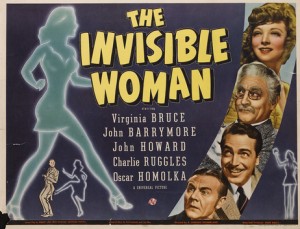 I must have seen The Invisible Woman (1942) for the first time when I was about eleven, when it as the sort of thing that would run on weekend afternoons on UHF television stations that couldn’t acquire other programming.
I must have seen The Invisible Woman (1942) for the first time when I was about eleven, when it as the sort of thing that would run on weekend afternoons on UHF television stations that couldn’t acquire other programming.
A comparatively benign — as in dotty elderly professor type — mad scientist named Professor Gibbs (played by John Barrymore, a great Shakespearean then near the end of his career, and yes, he is an ancestor of Drew Barrymore), is perfecting a machine that will make living things invisible. He needs a human subject on whom to test his device, but how to find one?
Since it’s 1940 and there is no Craigslist (and no pesky protocols about human experimentation, either) he does the sensible thing, and takes out a classified ad.
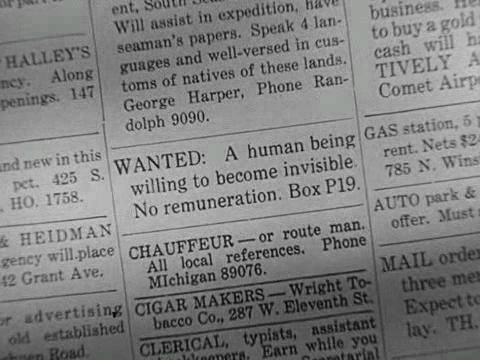
Poor Professor Gibbs gets a stack of mail telling him what a crank he is (he would have been familiar with the sex-blogging experience long before there was such a thing), but happily for him there is one young woman who takes a different attitude. Kitty Carroll, played by Virginia Bruce, takes one look at the ad and knows something she wants. The look in her eyes when she receives an invitation from Professor Gibbs (who has no idea that she’s a woman, by the way) is priceless.
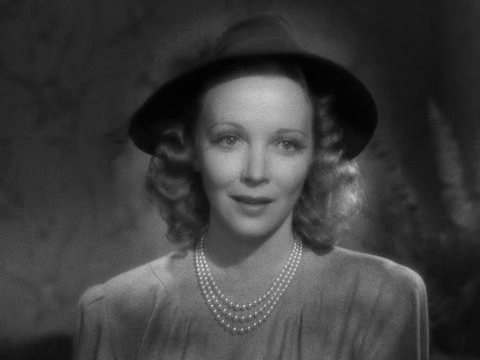
Her response to Gibbs’s letter: “This is the call of adventure.”
So she shows up at Professor Gibbs’s mad-lab and promptly gets herself invisibled. I should note, by the way, that Professor Gibb’s invisibility, much like the invisibility technology that Maureen will encounter at Gnosis, will turn a human being invisible, but not clothing, gear, etc. (We’re talking mad science here, not magic!) You have to be naked for the invisibility to work.
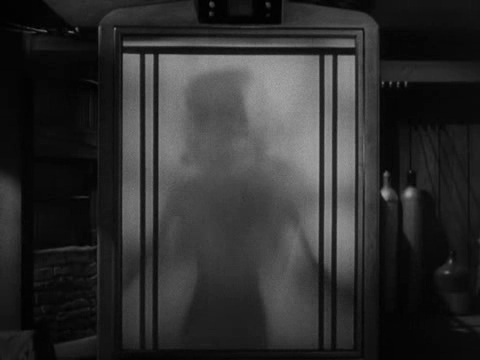
Let’s reflect on what Kitty has implicitly gone for here: “So, you want me to take off all my clothes, step into this machine that has hitherto never been tested on a human being, zap me with heaven-knows-what, and turn me invisibile? Sure, I’m game!”
I think I’m in love.
Anyway, Kitty promptly uses her newly-established invisibility to scare the living crap out of her mean boss, the aptly-named Mr. Growley, played by Charles Lane (a character actor of extraordinary longevity whose career reached all the way into the 21st century).
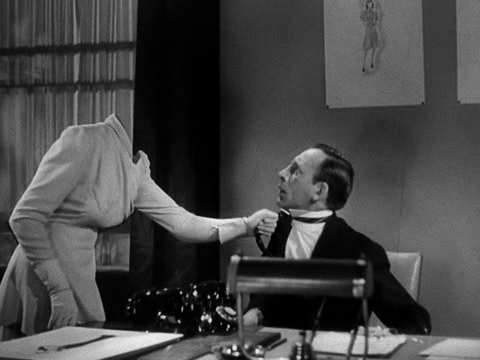
Invisibility makes possible a fine ironic joke about striptease, by the way. The point of stripping might be to see everything, but of course, if you’re invisible, then stripping means that you can see nothing. Kitty, in the process of terrifying Growley, does indeed strip down, leaving only her lady-like gloves as a visual cue to the audience of her location.
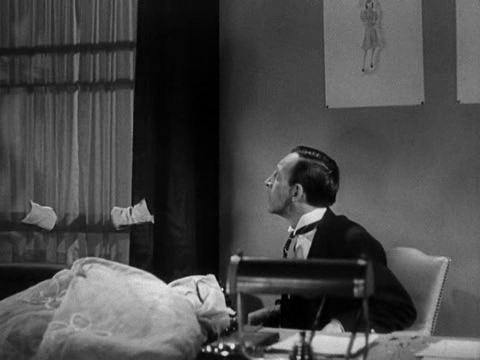
A friend of mine commenting on Peter Weller‘s performance in RoboCop once remarked, “it must be tough acting with only your chin.” It’s probably tougher acting with only your gloves.
There is a slight problem with Professor Gibbs’s invisibility technology, which is that it does tend to wear off, and this can lead to some ticklish situations. Although if you’re in a movie after the passage of the Hays Code and titilation is rather thin on the ground. this can be a good thing, at least for the audience.
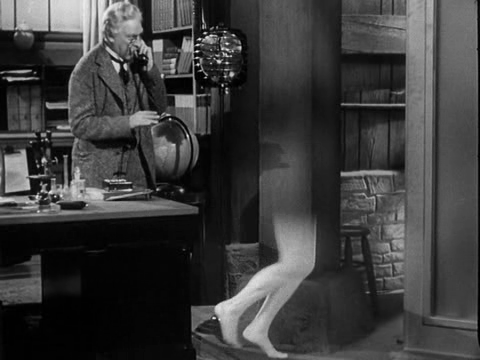
Certainly those bare legs were something that stuck in my juvenile mind! Probably the erotic side resitered only dimly, but I did recall thinking how wonderfully naughty it would be to run around naked without being seen.
